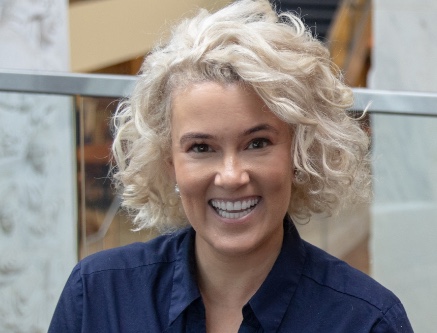By Lindsey Allen, author of ‘The Psychology of Pandemics’
Although some aspects of the novel coronavirus remain unknown, research on past pandemics and other outbreaks, such as those of certain influenza strains, SARS and Ebola, provides valuable insights into how health experts can help contain the spread of COVID-19 and encourage people to get vaccinations once they are available, says Steven Taylor, PhD, a professor and clinical psychologist at the University of British Columbia in Canada and author of “The Psychology of Pandemics,” published in October 2019 — just weeks before the novel coronavirus was first reported in China.
Taylor’s 30 years of research on health anxiety pointed him to the psychological phenomenon of pandemics, which are caused and contained by the way people behave and react to the threat of infection. He has found that health experts can take critical steps in containment, including clearly communicating risk levels, encouraging vaccination adherence, providing stress management advice for the general public and learning from our mistakes.
He believes we should be treating COVID-19 as preparation for the next pandemic or disaster. “With climate change increasingly impacting people’s lives, we can expect further disasters down the road,” says Taylor. “We can take the lessons from COVID-19 as they unfold and start preparing without panicking.”
The Monitor spoke with Taylor about his research on past pandemics, and how lessons from his research can be applied to COVID-19.
What can we expect to see in long-term impacts on mental health?
There will be a significant minority of people severely impacted by COVID-19 —particularly people who had preexisting psychological problems and who experience a disruption in access to their mental health-care providers. People with a high level of intolerance for uncertainty, for example as you see in generalized anxiety disorder, are at a higher risk for experiencing long-term impacts.
But long-term impacts will not be limited to those with preexisting issues. There will be people who lose their marriages, their jobs, their houses and their finances because of this pandemic. The upheaval and stress of being in close confines can have lasting impacts on people’s mental health and well-being. A seemingly unrelated situation provides a point of comparison: In the case of wildfires, people are cramped up together in temporary accommodation, experiencing stress and financial hardship, and it leads to an increase in fights, marital discord and domestic violence. We should expect to see some of the same issues in this pandemic.
However, people as a whole are highly resilient. As a species, we have survived countless pandemics — and while it can be stressful during the unfolding of a disaster, people do go on to adapt and recover.
Would the spread of the novel coronavirus be different if people had been paying closer attention to past research on pandemics?
Unfortunately, probably not. We, as humans, tend to be myopic and tend to forget the things of the past.
The World Health Organization (WHO) has learned lessons from past pandemics, but those lessons can be hard to put into practice with the public. For example, they’ve learned the potential harm in naming pandemics or diseases after people, places or things. Imagine if this virus had formally been called the Wuhan Bat Flu. These kinds of labels can cause rampant racism and needless calling of names — labels, words and names count a lot.
The WHO has also learned the importance of risk communication. It was important to sound the alarm early to get the public’s attention, but not at a level that people are terrified because that can be socially disruptive in itself. They’ve presented people with information early and described uncertainties, which is essential in earning the public’s trust.
But officials could have been much more proactive about addressing behaviors seen in previous pandemics. For example, many countries did not prepare as well as they could have for the predictable rise in racism, the surge of the worried well into hospitals and the panic buying. For example, with panic buying, officials could have worked with major grocery stores and food distributors ahead of any messaging to the public and asked them to put limits on purchasing. Then when messaging went out to the public, it could have been framed appropriately to let people know that they should stock up with a two-week supply of groceries but that purchases would be limited to prevent panic buying.
How can we encourage people to get vaccinated once a vaccine becomes available?
We should expect to see vaccine nonadherence, which has been a problem in previous pandemics such as the 2009 H1N1 pandemic, and it will be a problem for COVID-19. Many people will not get vaccinated because of the uncertainty around COVID-19, which will transfer to uncertainty concerning the vaccine. People are going to wonder about how extensively it has been tested and whether it’s safe. This vaccination hesitancy is going to make it even more difficult to manage this sort of infection.
Repetition of messaging is going to be critical. We need to get people used to the idea now that a vaccine is coming and that they should get vaccinated. Many people are unaware of the importance of herd immunity, which is the indirect protection that a population experiences when a large enough proportion is immune to infection, and getting out this message has the potential to increase vaccination. Interventions based on motivational interviewing can be successful in individual or small group settings, with providers addressing people’s underlying worldviews. Cognitive-behavioral therapy can be effective for people with injection phobia.
One of the big failures in this pandemic is that most countries have not been proactive in dealing with this. This is one area where we still have the opportunity to be proactive.
What are the important research questions for this pandemic?
My team is collecting data online, looking at how people are coping with self-isolation, among other topics related to this pandemic. We’re also investigating people’s varying coping strategies, both adaptive behaviors such as finding creative ways to connect with friends and maladaptive strategies such as substance use.
Looking ahead, we will be studying how this unfolds. As we’ve seen already, pandemics are not static — they’re dynamic situations in which certain anxieties might spike early on, but as things change, different anxieties arise. We will study the long-term impacts of the pandemic, such as the adaptive behaviors and effects of isolation. We also would like to get a better handle on how people cope with uncertainty — not just for COVID-19 but also for the upcoming impacts of climate change. How can we boost people’s resilience and reduce mob-mentality behaviors, like panic buying, and help people tolerate uncertainty?
It’s very difficult to predict how this pandemic will unfold, but cross-cutting issues in coping and stress tolerance will apply to disasters beyond COVID-19.
Allen is the author of the timely book ‘The Psychology of Pandemics’ explains where we have gone wrong with preparing for COVID-19 — and what we can still get right.























Leave a comment